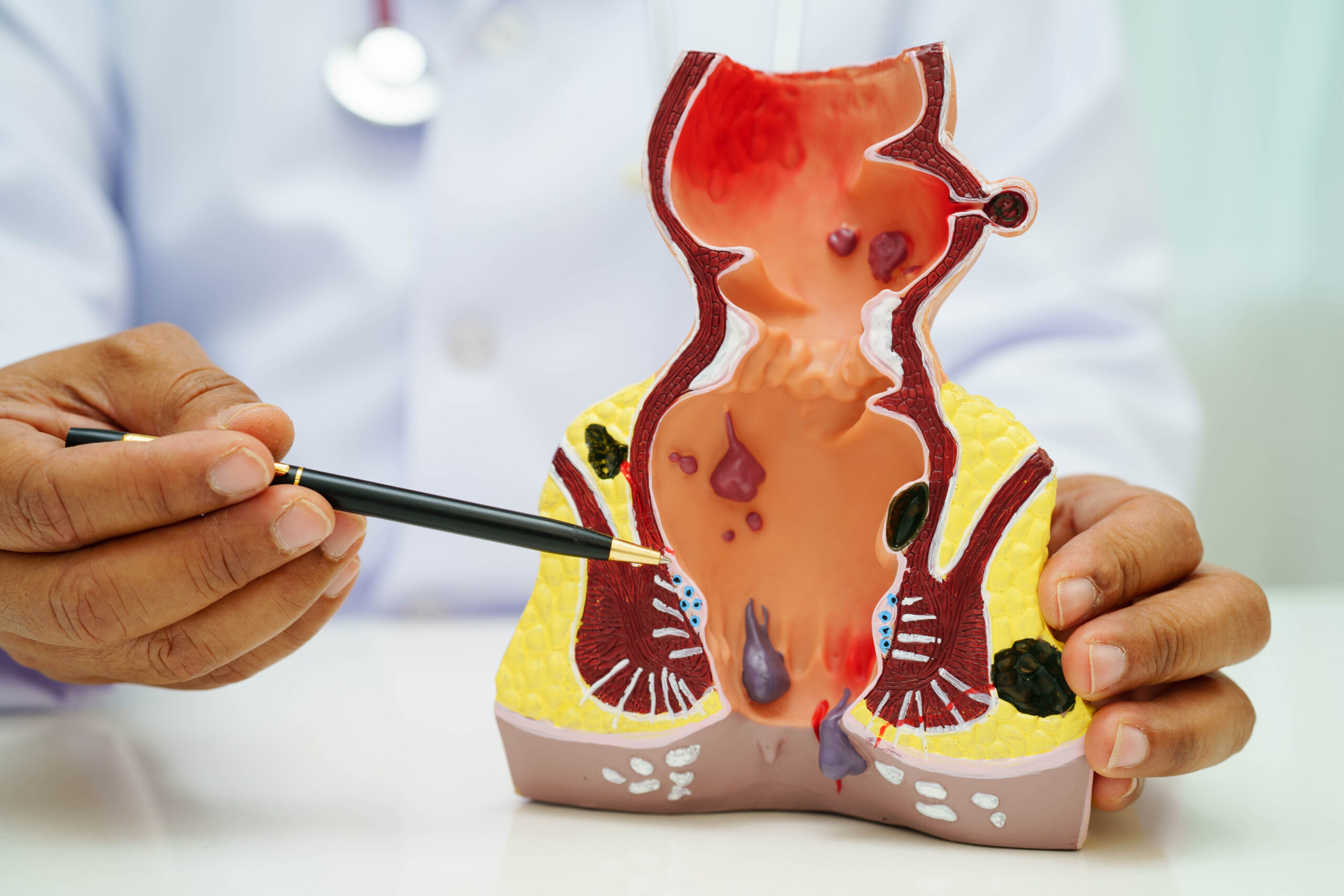Piles (hemorrhoids) and fissures are two of the most common anorectal conditions, troubling millions of people worldwide. Both cause discomfort, bleeding, pain, and difficulty in passing stools, often reducing quality of life. While conventional treatment generally recommends surgery for complicated or advanced cases, homeopathy offers a safe, non-surgical, and holistic solution aimed at long-term healing.
This leads to an important question for patients: what is the best treatment for piles and fissure—homeopathy or surgery? In this blog, we’ll explore the two approaches, compare their pros and cons, and answer some of the most frequently asked questions to help you make an informed choice.
Understanding Piles and Fissures
- Piles (Hemorrhoids): Swollen or inflamed veins in the rectum or anus that may lead to pain, itching, discomfort, or bleeding during bowel movements.
- Anal Fissure: A small tear in the lining of the anus, often caused by chronic constipation, hard stools, or trauma, resulting in sharp pain and bleeding when passing stool.
Although both affect the anal region, their severity and management differ.
Homeopathy vs Surgery: The Two Treatment Paths
-
Surgery for Piles and Fissures
Surgical options include hemorrhoidectomy, stapler surgery, and lateral internal sphincterotomy (for fissures). Surgery involves removing or repairing the affected tissue.
Pros of Surgery:
- Provides immediate relief in advanced or complicated cases.
- Eliminates large or severe piles in one procedure.
Cons of Surgery:
- Pain and bleeding after the operation.
- Risk of recurrence, especially with fissures.
- Potential complications such as infection, delayed healing, or even incontinence.
- Recovery time and restrictions in daily activities.
-
Homeopathy for Piles and Fissures
Homeopathy works by stimulating the body’s natural healing system. Remedies are prescribed after a detailed case-taking process, focusing not only on symptoms but also on underlying causes such as constipation, sedentary lifestyle, or stress.
Advantages of Homeopathy:
- Non-invasive, painless, and safe.
- Provides long-term relief by addressing root causes.
- No surgical risks or side effects.
- Improves digestion and bowel regularity.
- Suitable for all age groups, including pregnant women and elderly patients.
Commonly used remedies include:
- Ratanhia – for severe burning pain in fissures.
- Hamamelis – for bleeding piles with soreness.
- Nux Vomica – for piles linked to constipation and sedentary habits.
- Aloe Socotrina – for protruding, painful hemorrhoids.
Answering Key Questions
Which is better, allopathy or homeopathy?
Allopathy (modern medicine) provides fast relief through ointments, laxatives, or surgery. However, symptoms often return if lifestyle issues persist. Homeopathy, on the other hand, aims at treating the root cause, ensuring long-term results without side effects. In chronic cases of piles and fissures, patients find homeopathy more effective than allopathy.
What is the best medicine for piles and fissures?
There is no single “best” medicine, as the right remedy depends on the individual’s symptoms:
- Ratanhia – for severe fissure pain.
- Hamamelis – for bleeding piles.
- Nux Vomica – for piles due to sedentary lifestyle and constipation.
- Aloe Socotrina – for painful hemorrhoids.
A qualified homeopathic doctor will prescribe the right medicine after detailed evaluation.
Is fissure more serious than piles?
While both are uncomfortable, fissures tend to be more painful due to the sharp, cutting pain during bowel movements. Chronic fissures can lead to sentinel piles (skin tags), infection, or even fistula formation. Piles, on the other hand, may remain painless in the early stages. Hence, fissures often demand urgent treatment compared to piles.
Which fruit is not good for piles?
Low-fiber or constipating fruits should be avoided. Unripe bananas, guava seeds, and excessive jackfruit can worsen piles. Patients are instead advised to eat papaya, figs, pears, apples, and other fiber-rich fruits to ensure smooth bowel movements.
Can piles be cured without surgery?
Yes. Especially in early or moderate cases, homeopathy can cure piles without surgery by reducing vein swelling, relieving constipation, and preventing recurrence. Many patients who fear invasive procedures find safe, long-term relief with homeopathy.
What is the final stage of a fissure?
The final or chronic stage of a fissure occurs when the tear fails to heal naturally. This stage is marked by fibrosis, sentinel piles (skin tags), hypertrophied anal papilla, and sometimes fistula formation. While allopathy recommends surgery at this stage, homeopathy has also shown encouraging results in pain relief, healing, and preventing recurrence.
Homeopathy vs Surgery: Which Should You Choose?
Homeopathy is best for treating piles and fissure.
Lifestyle Tips to Support Healing
Regardless of treatment choice, lifestyle changes are essential:
- Eat a high-fiber diet rich in vegetables, fruits, and whole grains.
- Drink at least 8–10 glasses of water daily.
- Avoid prolonged sitting or straining during bowel movements.
- Stay active—exercise improves blood circulation.
- Maintain proper anal hygiene.
Dr. Rashmi Chandwani and CCube Homeopathy
Dr. Rashmi Chandwani, a leading homeopathic physician, has extensive experience in treating chronic anorectal conditions such as piles, fissures, and fistula without surgery. Her holistic approach combines classical homeopathy with modern insights into diet, lifestyle, and stress management, ensuring long-term relief and improved quality of life for her patients. She is known for her personalized consultations, where every prescription is tailored to the patient’s unique constitution and health history.
At CCube Homeopathy, Dr. Chandwani and her team provide comprehensive care by addressing the root causes of piles and fissures rather than just suppressing symptoms. The clinic emphasizes patient education, preventive care, and individualized remedies that not only heal but also prevent recurrence. Many patients who once feared surgery have found lasting relief through her treatments, making CCube Homeopathy a trusted destination for natural and non-invasive healing.
Conclusion
When comparing homeopathy vs surgery for piles and fissures, the decision depends on severity and patient comfort. Surgery offers quick relief but comes with risks and a chance of recurrence. Homeopathy, however, provides a safe, natural, and long-lasting solution by treating the underlying causes and improving overall health.
If you are struggling with piles or fissures, consult a qualified homeopathic doctor before opting for surgery. With the right guidance, it is possible to heal without painful and invasive procedures.




